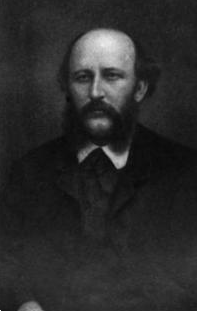
Karl Anton Eckert
Encyclopedia

Germany
Germany , officially the Federal Republic of Germany , is a federal parliamentary republic in Europe. The country consists of 16 states while the capital and largest city is Berlin. Germany covers an area of 357,021 km2 and has a largely temperate seasonal climate...
conductor
Conducting
Conducting is the art of directing a musical performance by way of visible gestures. The primary duties of the conductor are to unify performers, set the tempo, execute clear preparations and beats, and to listen critically and shape the sound of the ensemble...
and composer
Composer
A composer is a person who creates music, either by musical notation or oral tradition, for interpretation and performance, or through direct manipulation of sonic material through electronic media...
.
Eckert was born in Berlin
Berlin
Berlin is the capital city of Germany and is one of the 16 states of Germany. With a population of 3.45 million people, Berlin is Germany's largest city. It is the second most populous city proper and the seventh most populous urban area in the European Union...
, Germany
Germany
Germany , officially the Federal Republic of Germany , is a federal parliamentary republic in Europe. The country consists of 16 states while the capital and largest city is Berlin. Germany covers an area of 357,021 km2 and has a largely temperate seasonal climate...
, and by the age of five, had already proved himself as a musical child prodigy. After coming to the attention of Sing-Akademie zu Berlin director Carl Friedrich Zelter
Carl Friedrich Zelter
Carl Friedrich Zelter was a German composer, conductor and teacher of music.Zelter became friendly with Johann Wolfgang von Goethe, and his works include settings of Goethe's poems...
, he was entered into the academy in 1832, and with Zelter's support had his debut piano concert in the fall of that year.
He was later appointed Kapellmeister
Kapellmeister
Kapellmeister is a German word designating a person in charge of music-making. The word is a compound, consisting of the roots Kapelle and Meister . The words Kapelle and Meister derive from the Latin: capella and magister...
of Staatsoper Unter den Linden where he remained until the spring of 1848. After the end of the political turmoil of the Revolutions of 1848
Revolutions of 1848 in the German states
The Revolutions of 1848 in the German states, also called the March Revolution – part of the Revolutions of 1848 that broke out in many countries of Europe – were a series of loosely coordinated protests and rebellions in the states of the German Confederation, including the Austrian Empire...
, Eckert left Berlin for Amsterdam
Amsterdam
Amsterdam is the largest city and the capital of the Netherlands. The current position of Amsterdam as capital city of the Kingdom of the Netherlands is governed by the constitution of August 24, 1815 and its successors. Amsterdam has a population of 783,364 within city limits, an urban population...
, and later Brussels
Brussels
Brussels , officially the Brussels Region or Brussels-Capital Region , is the capital of Belgium and the de facto capital of the European Union...
.
Eckert died in Berlin at age 58.
Works
- Das Fischermädchen. Singspiel
- Das Käthchen von Nürnberg
- Der Laborant von Riesengebirge. Oper
- Scharlatan. Oper
- Wilhelm von Oranien. Oper

